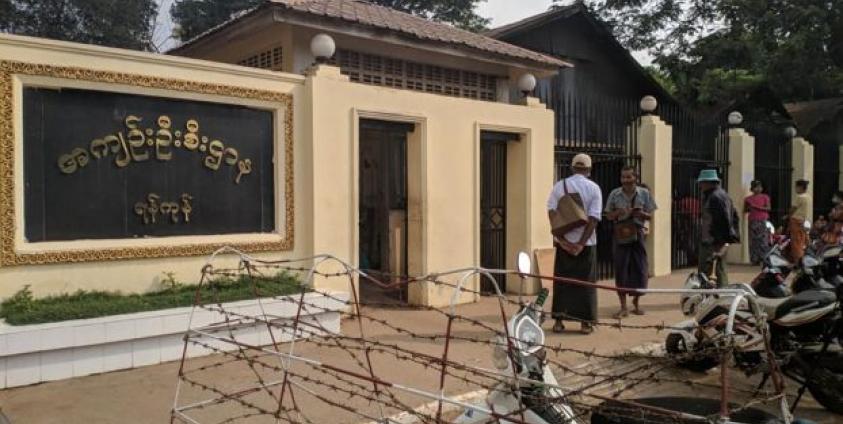Following the explosion at Yangon's Insein Prison, the ban on package deliveries in most prisons across the country may result in the unnecessary death of inmates in poor health, former political prisoners and democracy activists said.
On October 19, there was an explosion at the parcel receiving area of Yangon's Insein Prison, killing three staff of the Prison Department and five visitors, and injuring at least 13 others.
Following that incident, the coup council declared that parcel delivery would be prohibited in most prisons throughout the country indefinitely.
All prisoners including political prisoners, rely on food sent by family members because they don't receive nourishing meals, don't have access to enough medical care, and can only take expired medicine in the prisons.
"The regime’s decision to ban parcel deliveries may result in the unnecessary loss of lives of most inmates under condition and may affect the mental and physical condition of the prisoners, besides, the military council has committed serious human rights violations," said U Aung Myo Kyaw from the Assistance Association for Political Prisoners (AAPP).
The secretary of the Democratic Party for New Society (DPNS), Daw Hnin Hnin Hmwe said the ban could lead to difficulties in getting food and medicine for the prisoners, causing riots in the prison in the near future.
Currently, the Military Council has restricted permission to send parcels to prisoners at Insein Prison, Mandalay Obo Prison, Pyay Prison, Thayarwaddy Prison, and Dawei Prison since October 20.
In addition to the ban on family visits in Insein Prison, the trial of cases under investigation by special courts and external courts has been suspended.
There are tens of thousands of political prisoners and other prisoners held in prisons across the country after the military coup.







